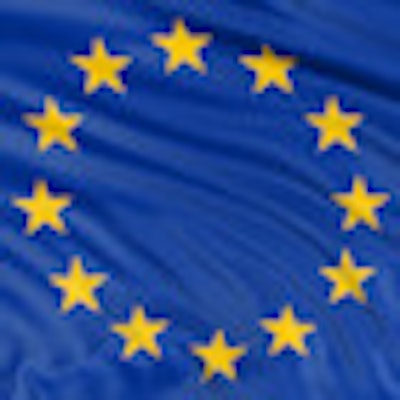
BRUSSELS - Plans to exempt MRI from the European Union's rules on electromagnetic fields (EMFs) could be sunk by national governments, officials warned last night at a high-level meeting. At least seven EU member states have indicated they will not support proposals to ensure the machines can continue being used across Europe.
Germany, Italy, Austria, Poland, the Czech Republic, Lithuania, and Portugal are currently opposed to the measure. Around nine more nations, including France and Spain, are undecided about the plan to revise the 2004 EU directive limiting workers' exposure to EMFs. The proposals, unveiled by the European Commission last June, would effectively exclude MRI systems from the scope of the directive by removing exposure restrictions on the technology.
Commission officials, who insist they consulted closely with MRI users and patient groups before publishing its revision plans, said member states are simply confused about the radiation risks of MRI, which is used in around eight million examinations annually in the EU.
"When people do not understand the issue, their default position is 'no,'" said Patricia Reilly, an aide to Máire Geoghegan-Quinn, EU commissioner for research, science, and innovation. Reilly urged the Alliance for MRI -- a coalition of patient groups, scientists, and doctors campaigning for a waiver for the technology -- to intensify its lobbying of national officials to explain why the exclusion is necessary.
"Scientists are not so good at explaining to the man on the street about the benefits of technology," she told an Alliance for MRI reception, held on Tuesday evening at the European Parliament, where she was echoed by Dr. Gabriel Krestin, vice president of the European Society of Radiology (ESR).
 MRI is a safe technology, according to Dr. Gabriel Krestin (far left). He is shown here with EU employment, social affairs, and inclusion commissioner László Andor, U.K. Liberal Democrat Liz Lynne MEP, and Spanish Socialist Alejandro Cercas MEP.
MRI is a safe technology, according to Dr. Gabriel Krestin (far left). He is shown here with EU employment, social affairs, and inclusion commissioner László Andor, U.K. Liberal Democrat Liz Lynne MEP, and Spanish Socialist Alejandro Cercas MEP."There are different reasons given for their opposition, but many of the member states simply do not understand the technology," said Krestin, who is an Alliance for MRI co-founder and chairman of the department of radiology at Erasmus MC, University Medical Center Rotterdam, the Netherlands. He expressed bafflement and frustration at the current deadlock in the EU's Council of Ministers, where member states vote.
"This is a safe technology. We don't have any adverse effects. I have used it for 25 years. Do you think I would expose myself to harmful radiation?" he said.
The Physical Agents (Electromagnetic Field) 2004/40/EC directive was formally approved by the EU in 2004 and was originally designed to address health risks for those working in the electrical power and telecommunication industries. However, concerns about the potential unintended consequences of its overcautious exposure limits have meant the implementation deadline has been put back to April 2012. The planned revamp is due to be voted by the European Parliament's Employment and Social Affairs Committee in February and by the full plenary in March, before being voted on by the Council of Ministers.



















